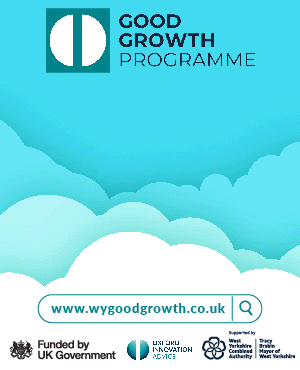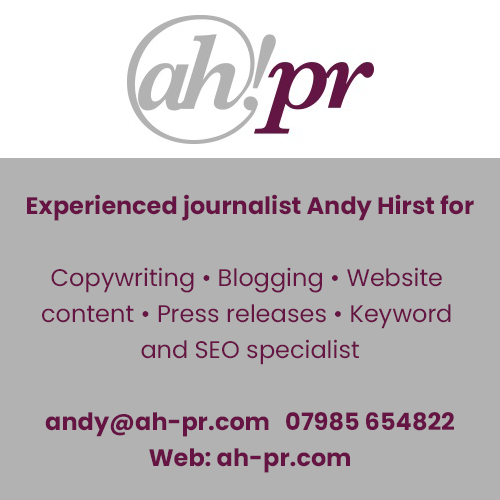Why I Work In… is a regular feature where we ask people about their jobs and the industry they work in. This time it’s Brian Shahelin, founder and managing director of Huddersfield-based Stafflex.

How long have you worked in the recruitment sector and how did you get started?
48 years – and I’m still enjoying it! When I started out there was one agency in particular that saw potential and the valuable experience I had already gained across a wide variety of permanent and temporary roles and offered me a position selling the services to potential customers.
From that initial position I progressed through all levels of management covering a wide range of niche recruitment sectors including nursing/paramedic, IT, accounting, sales as well as office and industrial until I reached Board level.
Tell us a bit about Stafflex and where it all started.
Incorporated on October 6th 1999, Stafflex opened the doors for trading on April 2nd 2000 (avoiding April 1st!)
Having entered the recruitment profession in 1975 and reaching a crossroads after working for two of the Industry giants and trailblazers at Board level the opportunity arose to take stock and create a better work/life balance.
So rather than the considerable travel previously required which would involve being in Aberdeen one day and Southampton the next with the associated nights away from home and family, the decision was made to use the knowledge and experience gained to set up a local business three miles from home.
The original plan was to establish an employment agency and business initially to provide temporary staffing solutions to the general industrial marketplace. Since inception the business has added provision of staff to the education, engineering and office sectors.
Growth and current staff levels of 22 people and plans for more have necessitated moving into the third location in Huddersfield.
The aim is to help employers make money by saving time on recruitment.
What’s your role now and what does it entail?
As founder (don’t let anybody kid you it is easy to do that) and MD, my role has changed from being very hands on to being coach and mentor for a fairly newly-appointed senior leadership team of three.
The role now involves monitoring key data and being available for guidance as appropriate while the team masters the various key business and statutory tasks that occur when running an organisation.

What do you love most about your job?
The thing I love most about my job and this industry is that it is a great leveller and anyone, regardless of background or qualification, can achieve success and rewards directly attributable to their individual aspiration, ability and effort.
Tough question but what one word would your colleagues use to describe you?
The one word my colleagues might use to describe me could be “supportive.”
What’s the best piece of business advice you’ve ever been given?
“Don’t accept what business consultants tell you at face value.”
What skills are needed to work in recruitment?
Whilst not exhaustive, some skills needed that help people to be successful in the recruitment profession include: ability to really listen; attention to detail; clear verbal and writing ability; numerical capability; lateral thinking. The rest is down to positive attitudes, motivation, ambition, work ethic and so on.
The jobs market is tough right now so what do employers need to do to hire the best talent?
I think it might have been Billy Ocean who sang ‘When the going gets tough, the tough get going’ and it has always been tough to attract the best talent.
Whatever the economic picture and particularly when it comes to recruitment of permanent staff, employers must never turn off the talent attraction tap.
Even if there is not a current or immediate need, have a conversation with everyone who contacts you as a form of screening and then keep their details to revisit when needs arise – this creates a positive impression and both sides will be more amenable to being contacted.
In addition, use every trusted and provably effective recruitment channel available which may include agency, advertising, job board, JobCentre, LinkedIn, Facebook, poster in corner shop etc.
In particular, use an intermediary who will take the time to understand the job and person requirements of any position that you may have.
This may seem counter-intuitive but the majority of people charged with responsibility for recruitment have never been trained to do job/person evaluation, let alone interview and select staff and recruitment is the most important job to be done in most organisations.
The cost recruiting the wrong person can be catastrophic. The cost of not recruiting can also be expensive – never turn the tap off!
What’s your advice for candidates seeking a new job in the current market?
Finding a job or a new job is predominantly an activity driven process. Approach all prospective employers and ask them about vacancies that are current or may be arising soon and determine the duties and responsibilities.
Then, having identified suitable positions, make sure research is done into the company to determine it is suitable and can offer what you want ie financial history, growing/shrinking, training and development opportunities exist, prospects etc.
In short, make sure you are informed, ensure your personal presentation is appropriate, have questions you want answered at interview as well as demonstrating willingness and adaptability. Above all else, make sure to tell them that you want the job and why.
If someone is reading this and thinks: ‘I’d love to work at Stafflex’ what should they do?
Anyone who thinks they would like to work at Stafflex should approach us. We will always have a conversation with anyone – with or without experience – who is interested in getting into recruitment, regardless of whether we are looking or not.
We are looking for diamonds and they are hard to find.




















